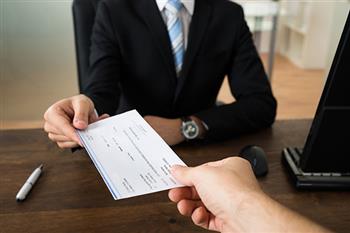Guide to selling a property in Spain
The process of selling a property in Spain is normally more straightforward than the process of buying one, but it all depends on the circumstances and upon whether the property is ina rural or an urban area. In most cases, Spanish people simply choose an estate agentand then look after the rest themselves. However, unless your Spanish is faultless and unless you are very well versed in the local culture, this really won’t work for a foreigner and so this guide is intended to steer you through this important process.
 How to find a buyer in Spain
How to find a buyer in Spain
Simple. Choose an estate agent. Start with us here Bella Nova Realty.
Although many Spanish people advertise their properties privately, via the local press and internet, a foreigner will always benefit from the services of an estate agent:
- They will know the market and prices, so securing you the best price for the property.
- They will show people around the property and, of course, if they’re Spanish be able to speak to them in fluent Spanish.
- They will be able to negotiate the sale of the property. As you know, negotiation is an art that takes a different form in every country.
- They will liaise with the buyers to complete the transaction as quickly as possible.
If your property is in a well-known and self-contained area – such as the old town in Marbella or on a well-known golf course – you need to decide whether to sell it through an agent that specializes in just that area or through one with a wider coverage. Generally, the best advice is to sell the property via the agents dealing with the most properties of that type in the area in question, whether they are local, regional or international.
Obviously, when choosing an Agent, you need to make sure that somebody in that office speaks your language fluently and, ideally, that there is a second person in the office to provide backup language skills when the first is out at lunch.
Estate agent’s fees vary in the range from 3% – 10% of the price, with the large majority towards the bottom of that range. If you are asked to pay more than this, you need to understand what services they are providing to justify the higher fee.
 Legal steps
Legal steps
When selling a property in Spain you – or, more likely, your lawyer – will have to do three main things:
Prepare a contract and document pack
This must be in Spanish but should ideally be accompanied by a translation into your language and, possibly, the language of the most likely buyers or, at least, English. This is most conveniently done by having the documents in a two-column format.Occasionally, when a client doesn’t speak neither Spanish nor English well enough to understand the contract, we normally recommend that the contract itself is prepared in Spanish and English – the two dominant languages in Spain – and that a separate translation be made in their language.
The document pack will comprise:
- A contract
- A copy of your proof of title
- A nota simple(which is an updated proof of ownership issued by the Land Registry)
- Copies of your latest utility bills and council tax receipts
- A copy of the Energy Efficiency Certificate (if you don’t have one already, a qualified technician must produce it – the cost will depend on the size of the property, but the minimum cost is €150)
- Any other relevant information related to the property
In rural areas of Andalucia, you’ll also need to obtain an Asimilado Fuera de Ordenacion (AFO), which is an administrative certificate confirming the legal status of the property. To obtain this, your title deed must be submitted to the Town Hall along with information on the habitability of your property, utility bills, an architect’s certificate etc, together with a registration fee. After consideration, the Town Hall will issue the AFO certificate if they find the property suitable.
As the circumstances vary and the fee depends on each Town Hall – and on whether you need to do any extra work to make the property suitable, such as legalizing a Will – it is impossible to give an accurate idea of the cost in this guide. However, we can say that it is not at all cheap to get an AFO.
Deal with any technical or other questions raised by the buyer
These can take many forms; from questions about whether the curtains are included with the sale and when the pool was last maintained to questions about the validity of your building license.
Some of these inquiries will be dealt with by the estate agent. In fact, almost all of them are first directed to the estate agent. When you appoint a lawyer, the legal issues will be sorted out between the lawyers of both parties, which will give you peace of mind as you ensure that the legal aspects are duly taken care of.
Attend to sign over the title to the property
This will be done in front of a Notary. If it isn’t convenient for you to attend to do this in person, you may appoint someone else to sign on your behalf by using a Power of Attorney, preferably your lawyer.

 Receiving the money
Receiving the money
As the seller of a property in Spain you will, mainly, be interested in the bit where you receive the money.
The buyer should pay over an initial deposit (usually €3,000 or €6,000) to the estate agent when the sale is agreed and then an additional amount, usually 10% of the price, at the time when they sign the private contract to buy the property. The rest of the price is paid when you sign over the title to the property in front of the notary.
The initial deposit paid to the agent and the additional 10% paid to your lawyer can, in some cases, be retained by your lawyer until the final title has been signed over: at which point the whole of the price (less any fees and taxes) is released to you. However, this will depend on the terms agreed on the reservation agreement and private contract.
 Transferring the money
Transferring the money
Although you can move your money freely from Spain and most country will allow the free movement of funds into their country, the way you choose to do it can save you a lot of money. This is particularly true if you are going to transfer the money from one currency to another. Usually, the best way is not to get your bank to arrange the transfer.
 Fees
Fees
There will be several fees that you have to pay out when you’re selling your property in Spain.
| Item | Notes | Cost |
| Estate agent’s fees | If you require the agent’s full service, including showing people around the property, and you appoint the agent on an exclusive basis | 5% |
| Lawyers’ fees | This will usually be subject to a minimum of €1,500 | 0.8% |
| Notaries’ fees | This is always paid by the buyer | N\A |
| Land Registry | This is always paid by the buyer | N\A |
| Energy Certificate | These will depend upon the size of your property and the particular technician. | A minimum of €150 |
| Mortgage cancellation | If there is a mortgage on the property, certain cancellation fees will be applicable (bank’s cancellation fee & Notary). | 1-2% of the loan |
 Taxes
Taxes
There could be two groups of taxes payable in Spain when you sell your property:
Local tax: Plusvalia
This is a local tax (specific to the area where the property is located) on the increase of the value of urban land, and the usual practice is for the seller of the property to pay it. Normally, the amount of this tax is not very high: it depends on where the property is located and the number of years that have elapsed since you became owners. Plusvalia has to be paid within the first month after the sale of a property. In some cases, the buyer’s representative will insist on retaining this amount and he/she will take responsibility for arranging payment of this tax.
Capital Gains Tax
If you are non-resident in Spain
As a non-resident seller of a property, you are obliged by law to pay Capital Gains Tax at the time of the sale of your property in Spain. This tax is 19% of the ‘profit’ obtained from the sale. This is 19% of the sale value (as shown on the Title Deeds – Escritura), less the purchase price as shown on the purchase deed when you bought it and the costs incurred in connection with the purchase. The resulting gain is then adjusted to take into account the length of time for which you owned the property. The formula for this adjustment is quite complicated and depends upon a number of factors. This tax is made up of two parts:
- The buyer of the property is obliged by law to withhold 3% of the declared sale price (as shown on the Title Deed – Escritura). This tax deduction is obligatory and cannot be avoided. The Notary Public will make sure that this 3% has been deducted. This amount is paid by the buyer on your behalf, and therefore he is responsible for making sure that the payment is made to the tax authorities. This tax deduction is a payment on account of your total capital gains tax liability, whatever that might be.
- If the tax due (19% of the profit made) turns out to be higher than the amount withheld by the first payment (see above), you need to pay the difference to the Spanish tax authorities. However, if the tax is lower, you can make a claim to be refunded the excess you have already paid. In either case, you are obliged to file this tax return. The time limit on filing is four months after the sale. In order to be entitled to any refund, you must be up to date with payment of your non-resident’s tax, which is due once a year.
If you are resident in Spain
If you are a resident of Spain, Capital Gains Tax is paid together with your personal income tax, which in Spain is filed in May-June each year in respect of earning in the previous year. Although you pay it together with the rest of your income, Capital Gains Tax is calculated separately, and the percentage goes from 19% to 25%, depending on the selling price.
Taxes in your own country
Depending upon your nationality, you will probably also have to declare the capital gain that you have made to the tax authorities in your own country and pay whatever tax they assess is due on that gain. However, in many cases you will find that there is a double taxation treaty between your country and Spain with the result that, typically, you will be able to deduct the tax you’ve already paid in Spain from any tax liability ‘back home’. See our tax guide to your home country for more information.
 Other things you might want to do when you sell your property in Spain
Other things you might want to do when you sell your property in Spain
You may want to cancel your insurance policy in relation to the property. You may be entitled to a refund, depending on the specific terms in your policy.
You may want to close your Spanish bank account – although, even if they are selling their only property in Spain, some people keep the account open and use it when visiting Spain.



